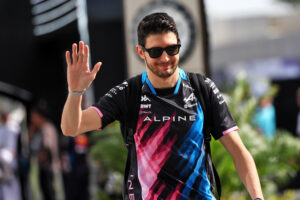Formula 1’s governing body, the FIA, has decided to not take any further action following Monday’s Sebastian Vettel hearing. The four-time champion’s penalty for hitting three-time champion and championship rival Lewis Hamilton during safety car conditions at the Azerbaijan Grand Prix remains no more than the 10 second stop and go he was awarded during the race. The FIA has wasted an opportunity to make a serious statement here. Now they and president Jean Todt look weak.
What the FIA Decision on Vettel Hearing Tells us
The FIA was right to investigate whether further action for the incident on the second restart should have been taken. They had a chance to speak to Vettel himself, whereas the race stewards did not. Claims that the only reason this came about was because Hamilton’s headrest came loose (and therefore he finished behind Vettel after a late pitstop) are utterly baffling. The headrest had nothing to do with it. Vettel would have still scored a large number of points regardless.
There was no justifying Vettel’s actions on race day at Baku. It is not the first time he has had a major outburst during a race, and it is not the first time he has deliberately driven in a dangerous manner. His actions this time were arguably not as severe as at the Mexican Grand Prix last year, but it should have been made clear at the time that sort of behaviour will not be tolerated. It was not, and it has happened again with the same driver, who has said ‘sorry’ and escapes major punishment again. Whether Vettel will publicly apologise in person as Hamilton at the 2009 Malaysian Grand Prix is yet to be seen.
Using a car as a weapon is not completely alien to F1. The most famous example is when Ayrton Senna took revenge on Alain Prost for his driving in 1990 at Suzuka. Michael Schumacher was caught trying (in vain) to eliminate Jacques Villeneuve in the 1997 title decider at Jerez. Pastor Maldonado swiped at Hamilton and Sergio Perez in 2011 and 2012 respectively in a non-racing situation. With the exception of Schumacher, none of these incidents were taken seriously enough. On the other hand, Johnny Cecotto Jr deliberately drove into a rival during a GP2 qualifying session, and got excluded from the remainder of the weekend. It would have been tough to complain about the penalty the Venezuelan got at the time.
Instead, Vettel has been given another slap on the wrist. It remains unclear what point the FIA intends to get across with this decision. This is not the sort of example which should be set to drivers in the junior categories. Sure, championships should not be decided in a courtroom or in a stewarding office, but there must be a point where ‘the show’ does not come into matters. Fair play and sportsmanship must be absolute priorities.
The decision-making process for a penalty was questioned following Romain Grosjean’s race ban after the 2012 Belgian Grand Prix ‘because [the crash] eliminated championship contenders’. It is right to question it again with this situation. Would the same sanction have been given had it not happened towards the front of the field? If so, then why? If deliberately driving into another driver does not warrant a race ban, then what actually does?
This ruling gives us more questions than answers. F1’s rulebook is unnecessarily complex in a number of areas, but making it clear what is and what is not acceptable needs to be put into black and white. The conduct on-track in motor racing across the board often feels somewhat patchy, so some rules need to be set and this needs to apply for all drivers (with rules applied for specific series as necessary).
Given the grey areas in all this, it’s evident why one set of fans would feel hard done by over this ruling than another set. Some neutrals feel that we should just ‘get on with the racing’, and it’s tough to blame them. At the time of writing, Hamilton himself has not made any statement on the ruling or on Vettel’s public apology. Many will hope that the Briton accepts the apology and that they can do what they did in the first seven races this season, which is that these great champions do all of their talking on the track fairly.
Main Photo






